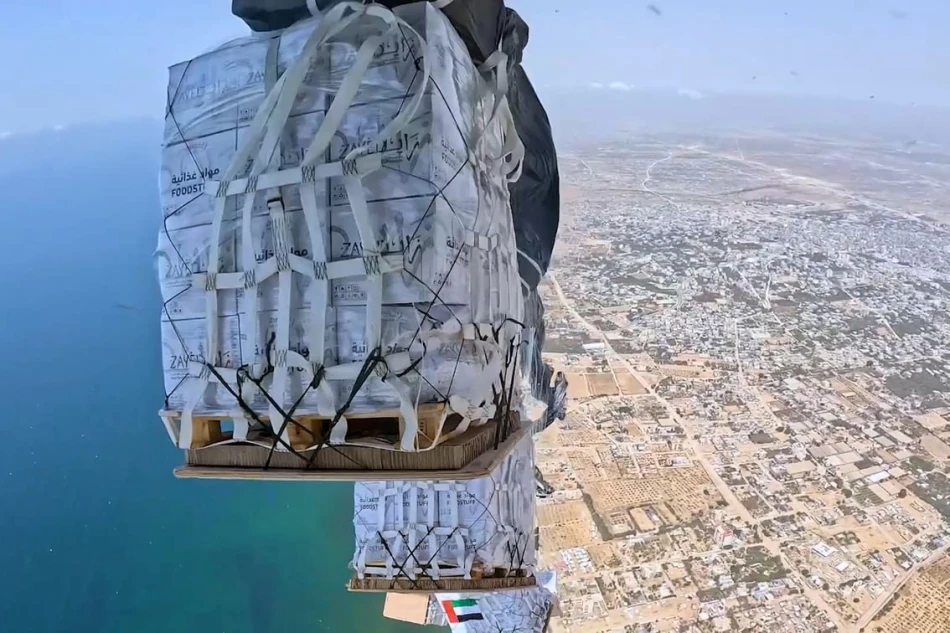
Emirati Airdrops Deliver Vital Aid to Gaza Under 'Operation Goodwill Birds'
UAE Leads 67th Humanitarian Airdrop to Gaza in Expanding International Coalition
The United Arab Emirates conducted its 67th humanitarian airdrop over Gaza as part of its "Birds of Goodness" operation, marking a significant escalation in international humanitarian coordination. The mission, executed in partnership with Jordan, Germany, Italy, the Netherlands, and Greece, has now delivered over 3,892 tons of aid, positioning the UAE as a central coordinator in Middle Eastern crisis response.
Multi-National Humanitarian Framework Takes Shape
The latest airdrop falls under the UAE's broader "Noble Knight 3" operation, a comprehensive relief initiative that employs air, land, and sea delivery methods. This multi-vector approach reflects lessons learned from previous humanitarian crises where single-channel aid delivery proved insufficient or vulnerable to disruption.
The inclusion of European nations—Germany, Italy, the Netherlands, and Greece—alongside regional partners Jordan and the UAE signals a diplomatic achievement that transcends traditional Middle Eastern alliance structures. This coalition model could serve as a template for future humanitarian responses in conflict zones.
Strategic Humanitarian Diplomacy
The UAE's leadership role in coordinating these operations represents a calculated soft power strategy. By positioning itself as the primary organizer of international humanitarian efforts, the Emirates enhances its diplomatic standing while demonstrating operational capabilities that extend beyond its borders.
The scale of the operation—67 airdrops totaling nearly 4,000 tons of supplies—rivals humanitarian efforts typically led by major powers or international organizations. This positions the UAE alongside traditional humanitarian leaders like the United States, European Union, and United Nations agencies.
Operational Implications and Regional Impact
The sustained nature of these operations, spanning multiple months, indicates significant logistical capabilities and financial commitment. Each airdrop requires complex coordination between multiple air forces, customs authorities, and ground support teams—a demonstration of the UAE's growing influence in regional crisis management.
Precedent for Future Crises
The "Birds of Goodness" model establishes important precedents for humanitarian intervention. Unlike traditional aid delivery through established channels, aerial drops bypass ground-level political and security complications, offering a more direct response mechanism for future emergencies.
The multi-national framework also creates diplomatic momentum that could influence broader Middle Eastern stability. European participation alongside Arab nations in humanitarian efforts may facilitate future diplomatic initiatives and economic partnerships in the region.
Broader Regional Strategy
This humanitarian leadership aligns with the UAE's broader strategy of positioning itself as a regional stability anchor. Similar to Singapore's role in Southeast Asia or Switzerland's in Europe, the Emirates appears to be cultivating a reputation as a reliable coordinator for international cooperation in times of crisis.
The operation's success could encourage similar initiatives in other regional conflicts, potentially establishing the UAE as a go-to partner for Western nations seeking to engage constructively in Middle Eastern affairs without direct political entanglement.
Most Viewed News

 Sara Khaled
Sara Khaled






